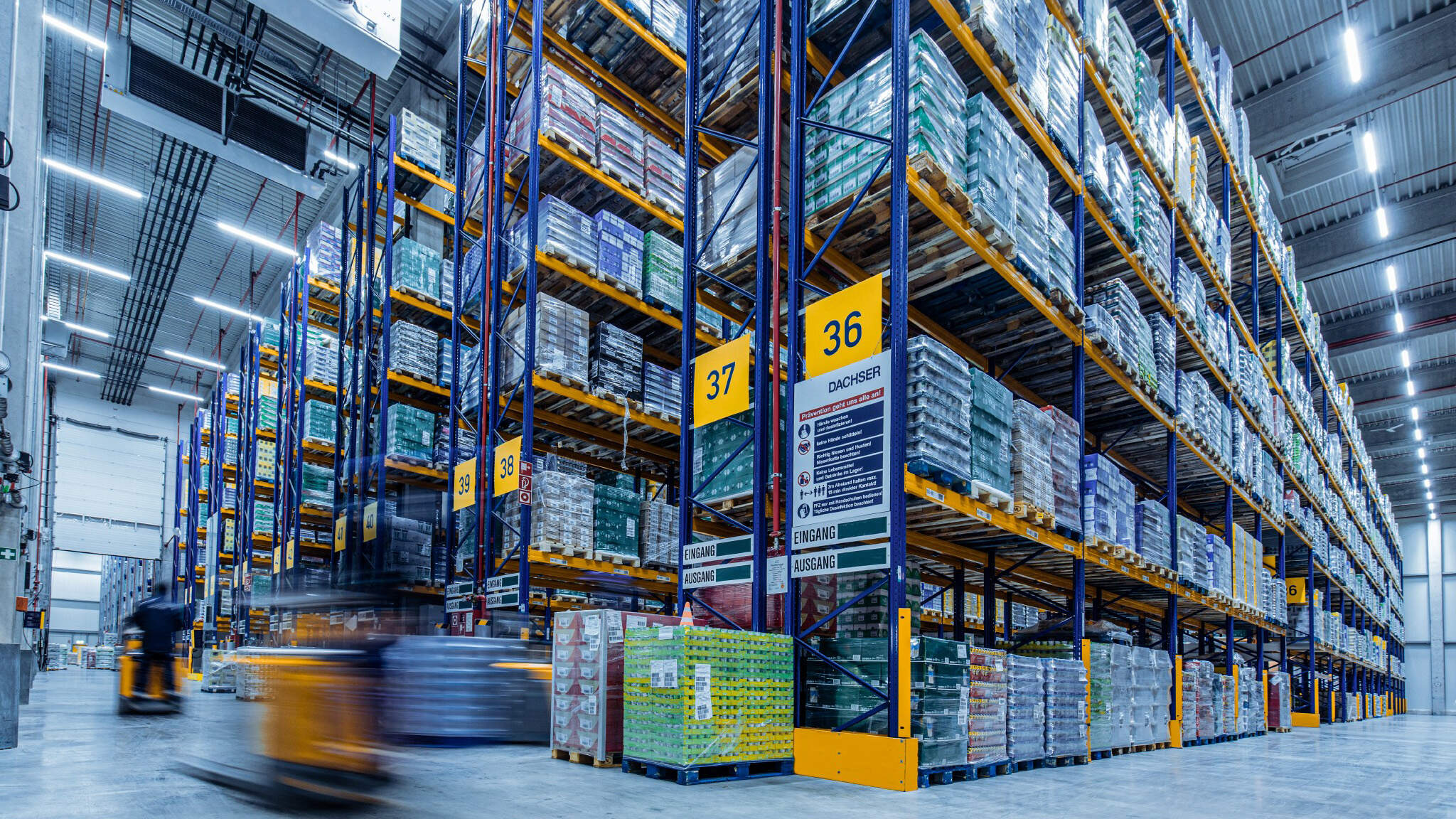Ready to turn insight into action?
We help organisations transform ideas into measurable results with strategies that work in the real world. Let’s talk about how we can solve your most complex supply chain challenges.

Navigating Core Themes and Emerging Trends in Supply Chain Management: A Strategic Guide for 2025 and Beyond
The supply chain landscape is evolving at an unprecedented pace, driven by technological advancements, changing consumer expectations, and the growing importance of sustainability. As we approach 2025 and 2026, and look further ahead to 2027 and beyond, supply chain leaders will need to focus on both immediate priorities and longer-term trends that will shape the future of their operations. This article explores six key themes and trends—three with a focus on 2025 and 2026 and three emerging over 2027 and beyond—that are expected to have a profound impact on supply chains across industries. Additionally, we will discuss how Trace Consultants can support organisations in navigating these changes, ensuring they remain competitive and resilient in the face of evolving challenges.
Core Themes: 2025 and 2026 Focus
ESG (Environmental, Social, and Governance)
Three years ago, ESG was often viewed as a "nice to have" rather than a critical business priority. Today, however, ESG has become a "must-have" for companies across all industries. Stakeholder demands, regulatory pressures, and a growing recognition of the importance of sustainability have elevated ESG to the top of the corporate agenda. For supply chain leaders, this means taking proactive steps to align their operations with ESG goals.
Key Actions:
- Sustainable Sourcing: Companies must ensure that their supply chains are aligned with sustainable sourcing practices, including the use of renewable resources, ethical labour practices, and environmentally friendly production methods.
- Transparency and Traceability: Enhancing transparency and traceability within the supply chain is critical for meeting ESG goals. This involves implementing systems that allow companies to track the origin of materials, monitor supplier practices, and report on ESG metrics.
- Regulatory Compliance: As governments around the world introduce stricter regulations related to ESG, companies must stay ahead of these changes by ensuring compliance across their supply chains. This may involve revising supplier contracts, investing in new technologies, and adopting best practices.
How Trace Consultants Can Help:Trace Consultants offers expertise in ESG strategy development and implementation. By conducting thorough assessments of current supply chain practices and identifying areas for improvement, Trace Consultants helps organisations align their operations with ESG goals. This includes developing sustainable sourcing strategies, implementing transparency and traceability tools, and ensuring regulatory compliance.
Advanced Robotics and Automation
The days of fully manual supply chains are rapidly coming to an end. With advancements in robotics and automation, companies are increasingly turning to technology to optimise their operations. From robots that stack pallets and pick orders in warehouses to algorithms that optimise routing and scheduling, automation is transforming supply chains into highly efficient, agile systems.
Key Actions:
- Warehouse Automation: Implementing robotic systems in warehouses can significantly improve efficiency by automating tasks such as picking, packing, and sorting. This reduces labour costs and increases throughput.
- Predictive Maintenance: Utilising AI and machine learning to predict when equipment will need maintenance can prevent costly downtime and ensure continuous operations.
- Automation of Repetitive Tasks: Beyond the warehouse, companies can use automation to streamline repetitive tasks across the supply chain, such as order processing and inventory management.
How Trace Consultants Can Help:Trace Consultants assists companies in identifying opportunities for automation and developing tailored strategies to implement advanced robotics across their supply chains. This includes evaluating the ROI of automation investments, selecting the right technologies, and managing the integration process to ensure a seamless transition.
Workforce of the Future
The integration of advanced robotics and automation into supply chains has sparked concerns about the future of the workforce. However, rather than replacing human workers, technology is increasingly being used to enhance human capabilities. The workforce of the future will see humans and robots working side by side, with humans taking on more strategic and value-adding roles.
Key Actions:
- Reskilling and Upskilling: As automation takes over repetitive tasks, companies must invest in reskilling and upskilling their workforce to ensure employees are equipped to take on more complex, strategic roles.
- Human-Robot Collaboration: Designing workflows that promote collaboration between humans and robots can lead to more efficient and effective operations. This includes rethinking the layout of workspaces and implementing technologies that facilitate communication between humans and machines.
- Focus on Strategic Tasks: With robots handling manual tasks, human workers can focus on areas such as strategy development, customer relationship management, and process optimisation.
How Trace Consultants Can Help:Trace Consultants provides guidance on workforce transformation, helping companies develop strategies for reskilling and upskilling their employees. By designing human-robot collaboration frameworks and identifying areas where human workers can add the most value, Trace Consultants ensures that companies can fully leverage the benefits of automation.
Emerging Trends: 2027 and Beyond Focus
Distributed Ledger Technologies and Digital Money
Distributed ledger technologies (DLTs), such as blockchain, have primarily been associated with cryptocurrencies. However, their potential applications extend far beyond digital money. In the supply chain context, DLTs offer the promise of enhanced transparency, security, and efficiency by providing a single source of truth for all transactions. This can help mitigate risks, reduce fraud, and streamline processes across the global supply chain.
Key Actions:
- Blockchain for Transparency: Implementing blockchain technology can provide end-to-end visibility across the supply chain, ensuring that all parties have access to accurate and up-to-date information.
- Smart Contracts: Leveraging smart contracts—self-executing contracts with the terms of the agreement directly written into code—can automate processes such as payment and delivery verification, reducing the need for intermediaries and speeding up transactions.
- Digital Payments: As digital currencies and payment systems become more prevalent, companies should explore integrating these technologies into their supply chains to facilitate faster and more secure transactions.
How Trace Consultants Can Help:Trace Consultants assists companies in exploring and implementing distributed ledger technologies and digital payment systems within their supply chains. By providing strategic guidance on blockchain adoption, smart contract implementation, and digital money integration, Trace Consultants helps organisations enhance transparency, security, and efficiency.
Sectoral Transformations
The years 2027 and beyond will see significant transformations across various sectors, driven by technological advancements, changing consumer expectations, and evolving regulatory landscapes. These transformations will directly impact supply chains, requiring companies to adapt their strategies to remain competitive.
Key Actions:
- Healthcare and Life Sciences: The rise of precision medicine and personalised healthcare will require supply chains that can deliver complex, temperature-sensitive products quickly and reliably. Companies in this sector must invest in advanced logistics and tracking systems to meet these demands.
- Retail and Distribution: The continued growth of e-commerce will necessitate a seamless, omnichannel supply chain that can deliver a consistent customer experience across all touchpoints. This will require integrating online and offline operations, optimising last-mile delivery, and leveraging data analytics to understand customer behaviour.
- Aerospace and Defence: Geopolitical issues and the need for advanced technology in aerospace and defence will increase scrutiny on supply chains in these sectors. Companies must ensure that their supply chains are secure, resilient, and capable of supporting the development and deployment of cutting-edge technologies.
How Trace Consultants Can Help:Trace Consultants supports companies in navigating sector-specific transformations by providing tailored strategies that align with the unique demands of each industry. This includes developing supply chain solutions that meet the specific needs of healthcare, retail, aerospace, and other sectors, ensuring that companies remain competitive in a rapidly changing environment.
Metaverse
What was once considered a futuristic concept confined to gaming and entertainment is now being explored as a powerful tool for supply chain management. The metaverse—a virtual world where users can interact, work, and shop—offers new opportunities for supply chain leaders to enhance visibility, streamline operations, and engage with customers in innovative ways.
Key Actions:
- Virtual Supply Chain Management: The metaverse can be used to create digital twins of supply chains, allowing companies to simulate and optimise their operations in a virtual environment. This can help identify inefficiencies, test new strategies, and improve decision-making.
- Customer Engagement: Companies can leverage the metaverse to create immersive customer experiences, offering virtual showrooms, personalised shopping experiences, and interactive product demonstrations.
- Real-Time Monitoring: The metaverse can provide real-time monitoring and management of supply chain operations, enabling companies to respond quickly to disruptions, track shipments, and ensure timely delivery.
How Trace Consultants Can Help:Trace Consultants helps companies explore the potential of the metaverse for supply chain management. By providing insights into how virtual environments can be leveraged to enhance operations, customer engagement, and real-time monitoring, Trace Consultants ensures that companies can stay ahead of the curve and fully capitalise on emerging technologies.
Preparing for the Future with Trace Consultants
As the supply chain landscape continues to evolve, companies must be proactive in addressing both immediate priorities and longer-term trends. By focusing on core themes for 2025 and 2026 such as ESG, advanced robotics, and workforce transformation, while also preparing for emerging trends like distributed ledger technologies, sectoral transformations, and the metaverse in 2027 and beyond, companies can build resilient, future-proof supply chains.
Trace Consultants offers the expertise and strategic guidance needed to navigate these changes, helping organisations develop and implement supply chain strategies that align with their business goals. Whether your company is looking to enhance sustainability, embrace automation, or explore new technologies, Trace Consultants can provide the support you need to succeed.
For more information on how Trace Consultants can assist your organisation in preparing for the future of supply chain management, reach out to their team of experts today.
Contact us today, trace. your supply chain and procurement consulting partner.
Ready to turn insight into action?
We help organisations transform ideas into measurable results with strategies that work in the real world. Let’s talk about how we can solve your most complex supply chain challenges.








